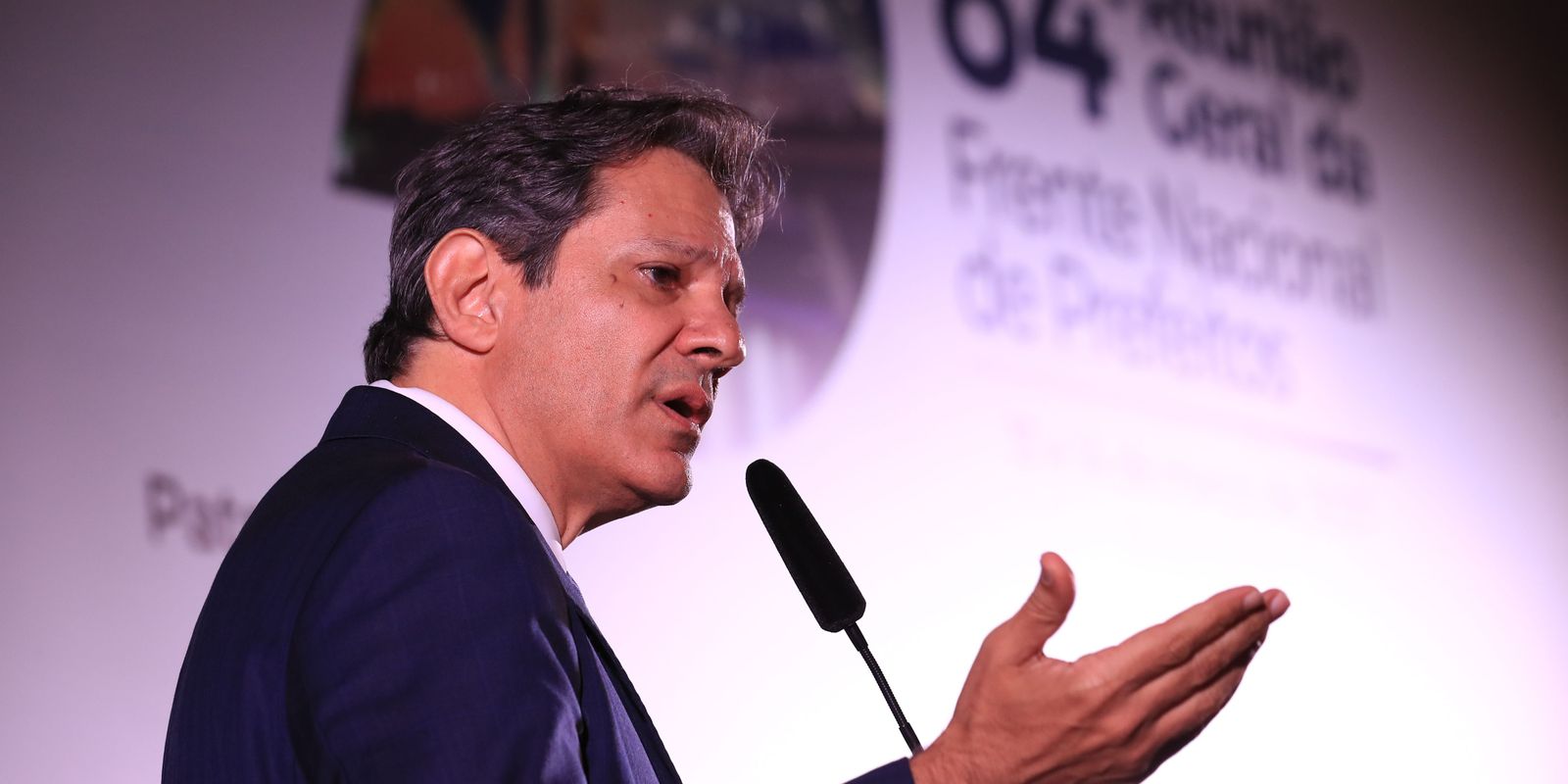The unification of several taxes in the Tax on Goods and Services (IBS) will not bring loss of collection to municipalities, said this Monday (13) the Minister of Finance, Fernando Haddad. He participated in a debate on tax reform promoted by the National Front of Mayors (FNP).
The minister repeated recent statements that the IBS, which works as a type of Value Added Tax (VAT), will not reduce the revenues of 90% of city halls. Haddad reiterated that VAT is the most adopted model on the planet, in addition to bringing more simplicity and transparency to the tax system.
“When I propose VAT, which can be dual [um para a União e outro para os estados e municípios] or not, it is a transparent, fair and simple tribute. VAT will not reduce municipal revenues at all; 90% will stay in exactly the same place as it will be charged at the destination [local de consumo das mercadorias]”, declared the minister.
Haddad pointed out that the debate on the impact of tax reform on municipalities is being affected by noise. “They are creating ghosts that must be faced in frank dialogue. I am here to solve the country’s problem, not the Union’s problem, ”he said.
The minister compared the creation of the IBS to the Basic Education Maintenance and Development Fund (Fundeb). According to the minister, since the introduction of the fund, in 2003, the tax burden has not increased, with only minor adjustments. “There is a disorganization of ICMS and also of federal taxes”, he said.
Historic
The two proposed amendments to the Constitution (PEC) of the tax reform, PEC 45 (from the Chamber) and PEC 110 (from the Senate), provide for the unification of several taxes in the IBS. The Chamber’s proposal brings together two contributions – the Social Integration Program (PIS) and the Contribution for the Financing of Social Security (Cofins) – and three taxes – the Tax on Industrialized Products (IPI), the Tax on the Circulation of Goods and Services (ICMS) and Services Tax (ISS).
The Senate proposal creates two taxes: the Contribution on Goods and Services (CBS), which would remain with the Union, and the Tax on Goods and Services (IBS). CBS would replace the Contribution for the Financing of Social Security (Cofins), the Social Integration Program (PIS) and the Civil Servant Asset Formation Program (Pasep).
The Tax on Goods and Services (IBS) would replace the Tax on the Circulation of Goods and Services (ICMS), collected by the states, and the Tax on Services (ISS), which is the responsibility of the municipalities. The proposal did not unify the Tax on Financial Operations (IOF), the Contribution for Intervention in the Economic Domain (Cide) and the education allowance in the new federal tax.
Currently, the contributions remain entirely with the Union, the IPI is shared between the Union and local governments, the ICMS remains with the states; and the ISS, with the municipalities. The National Front of Mayors, an entity that represents 415 large and medium-sized municipalities, is against the creation of the IBS. The entity defends PEC 46/2022, authored by Senator Oriovisto Guimarães (Podemos-PR), which would only unify legislation for ICMS and ISS, but would maintain the autonomy of city halls and state governments to establish rates and administer the collection.
Simple national
The finance minister denied that small traders would be harmed by the creation of the IBS. Haddad reiterated that businesses included in Simples Nacional will not be covered in this phase of the tax reform. According to the minister, approval of the reform could boost the country’s reindustrialization and bring an impact of up to 20% of GDP.
“We want to reindustrialize the country, and this sector will benefit, yes. This reform has an impact of 20% of GDP. She is going the right way. Any economist knows,” he said.
At the end of the meeting, Haddad reaffirmed that a possible definitive exemption from the payroll will only be discussed in the second semester, being processed together with the reform of the Income Tax.
















